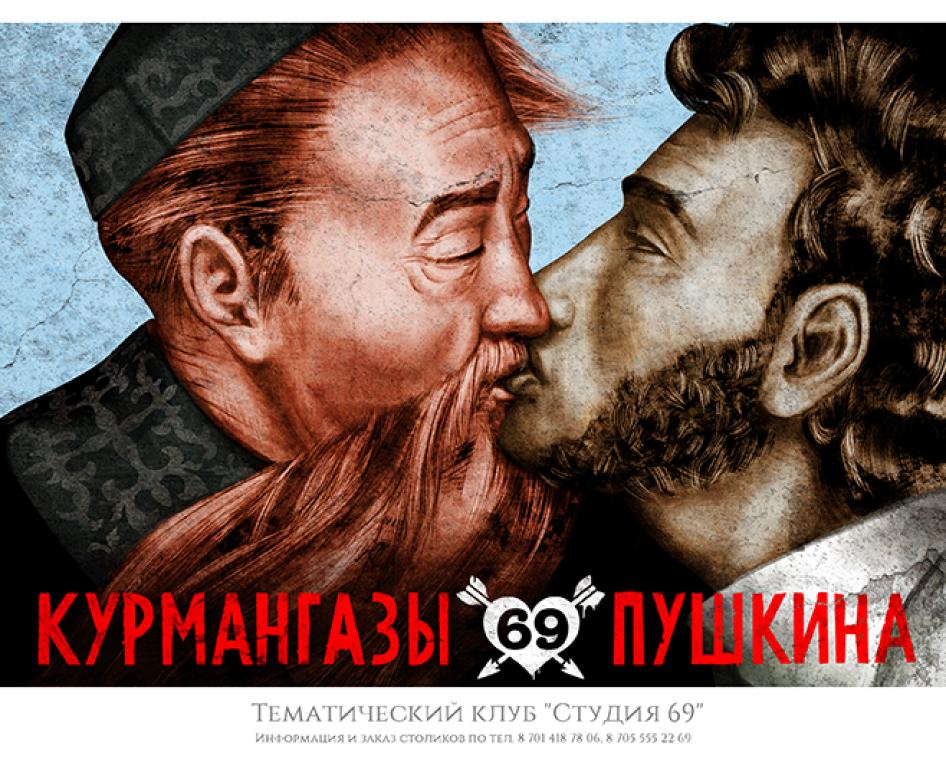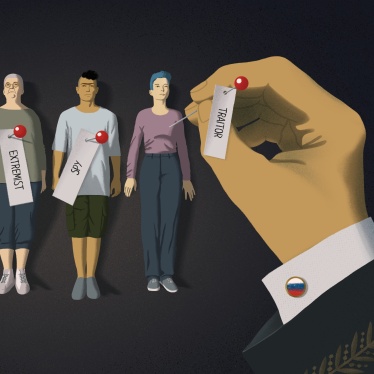(Berlin) – Kazakhstan fails to protect lesbian, gay, bisexual and transgender (LGBT) people from violence and discrimination, Human Rights Watch said in a report released today. LGBT people in Kazakhstan face hostility and abuse, a lack of sufficient response and support mechanisms, and an intensified climate of fear amid recent efforts to adopt an anti-LGBT “propaganda” law.
The 31-page report “‘That’s When I Realized I Was Nobody’: A Climate of Fear for LGBT People in Kazakhstan,” documents pervasive homophobic attitudes, hateful treatment, and failure of police and other government agencies to protect LGBT people in Kazakhstan. The report is based on in-depth interviews with LGBT people, activists, human rights experts, and social service and health practitioners in Kazakhstan. Human Rights Watch also analyzed the proposed “propaganda” legislation presented in Kazakhstan’s parliament early in 2015 that was later scrapped.
A lesbian mother in Almaty said: “The problem is that we start to believe these nasty things about ourselves because there’s no counter-argument in public.”
Almaty, the bustling southern city that is Kazakhstan’s former capital, is contending to host the 2022 Winter Olympics. The only other contender is Beijing. Both countries have serious human rights problems, but in the process of bidding for the Olympics, Kazakhstan’s parliament moved to adopt anti-gay “propaganda” legislation that would have directly contravened the Olympic Charter’s rule that discrimination is incompatible with the Olympic Movement. The legislation was not signed into law, but one member of parliament has proposed reintroducing it. The International Olympic Committee (IOC) will select the 2022 host country on July 31, 2015, in Kuala Lumpur.
“The IOC shouldn’t take its eye off the ball on ugly discrimination and human rights abuses for Olympic host contenders,” Knight said. “The IOC and the Kazakhstan government should publicly condemn anti-LGBT discrimination to signal that there is no place for homophobia in global sport or the countries that want to host Olympic Games.”
In December 2014, as part of its “Olympic Agenda 2020,” the International Olympic Committee (IOC) confirmed that all future host city contracts would include a requirement to specifically ban discrimination on the basis of sexual orientation. The IOC move has been seen by many as a rebuke to Russia, which passed a similar discriminatory anti-gay “propaganda” law ahead of the 2014 Sochi Winter Olympics.
Despite the IOC’s strengthened requirements, in early 2015, Kazakhstan’s parliament passed draft legislation against “propaganda of non-traditional sexual orientation.”
The process for adopting the draft legislation in its final stages was not transparent, and final drafts of the bills were never made public. The bills were sent to President Nursultan Nazarbayev for his signature after they passed a senate reading in February. On May 18, Kazakhstan’s Constitutional Council found pending legislation unconstitutional, but did not address the discriminatory aspects of the bills.
If the bill was rejected only on the grounds that it was vaguely worded, there is no guarantee that future legislation would respect the non-discrimination obligation in international human rights law and the Olympic Charter, Human Rights Watch said.









